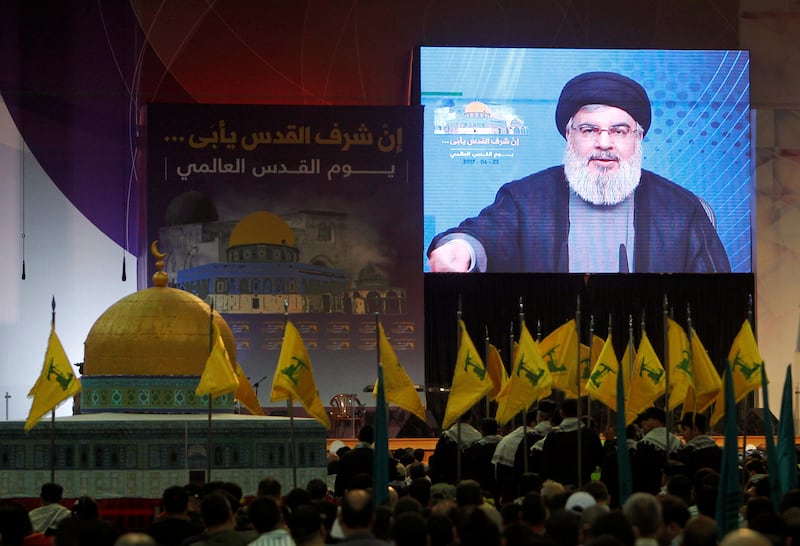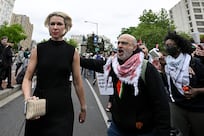Following months of deliberations, three bills targeting Hizbollah are close to being introduced in US Congress, in a move that marks an escalation against the Lebanese armed party, The National has learned.
US and diplomatic sources in Washington said the drafts for the three bills had been finalised and could be introduced as soon as this Friday. The largest of the three is Hizbollah’s International Financing Prevention Act for 2017 sponsored by US congressman Ed Royce, the chairman of the House Foreign Affairs Committee.
Mr Royce’s bill has been months in the works and has seen a few amendments following visits of Lebanese officials and financial delegations to Washington in the last six months. They include foreign minister Gebran Bassil, a group of parliamentarians, and executives from Lebanese banks who tried to shield the economic sector in the country from any backlash in the upcoming sanctions.
According to a final draft of the bill seen by The National, the text calls for sanctions on any foreign person "assists, sponsors, or, provides significant financial, material, or technological support" for these entities that are all affiliated with Hizbollah: Bayt Al Mal, Jihad Al Bina, the Islamic Resistance Support Association, the Foreign Relations Department of Hizbollah, the External Security Organisation of Hizbollah, or any successor or affiliate thereof; Al Manar TV, Al Nour Radio, or the Lebanese Media Group, or any successor or affiliate thereof; and "a foreign person determined by the president to be engaged in fundraising or recruitment activities" for Hizbollah.
The bill also imposes sanctions on foreign states that support Hizbollah, and targets its “narcotics trafficking and significant transnational criminal activities”. It grants the US resident, after passage in the House and the Senate, power to waive or target individuals or entities with the sanctions.
However, the bill does not target explicitly any other group in Lebanon besides Hizbollah. The text is based on the 2015 Hezbollah’s International Financing Prevention Act but has extra measures and updates that attempt to choke the party’s internal and external funding networks. The text is based on the 2015 Hezbollah’s International Financing Prevention Act but has extra measures and updates that attempt to choke the party’s internal and external funding networks.
While an early draft of the bill leaked in the Lebanese press in March indicated that the Shiite group Amal would be targeted in the new measures, the new version does not make a mention of Amal. Instead the bill is hoping to isolate the Hizbollah funding networks without affecting Lebanon’s fragile economy.
The two other bills that will be introduced in Congress before the August recess are authored by senator Marco Rubio and congressman Mike Gallagher, both members of the Republican party representing Florida and Wisconsin respectively.
The Rubio bill is expected to be the harshest in its language and targeting, according to a diplomatic source who met with the senator’s office this week. For its part, the Gallagher bill will focus on Hizbollah’s use of human shields in its fighting inside and outside Lebanon.
The introduction of the bills would mark an escalation against Hizbollah ahead of a debate and a vote in September. They also precede Lebanese prime minister Saad Hariri's visit to Washington next week, where he is expected to meet president Donald Trump and key members of his cabinet.







